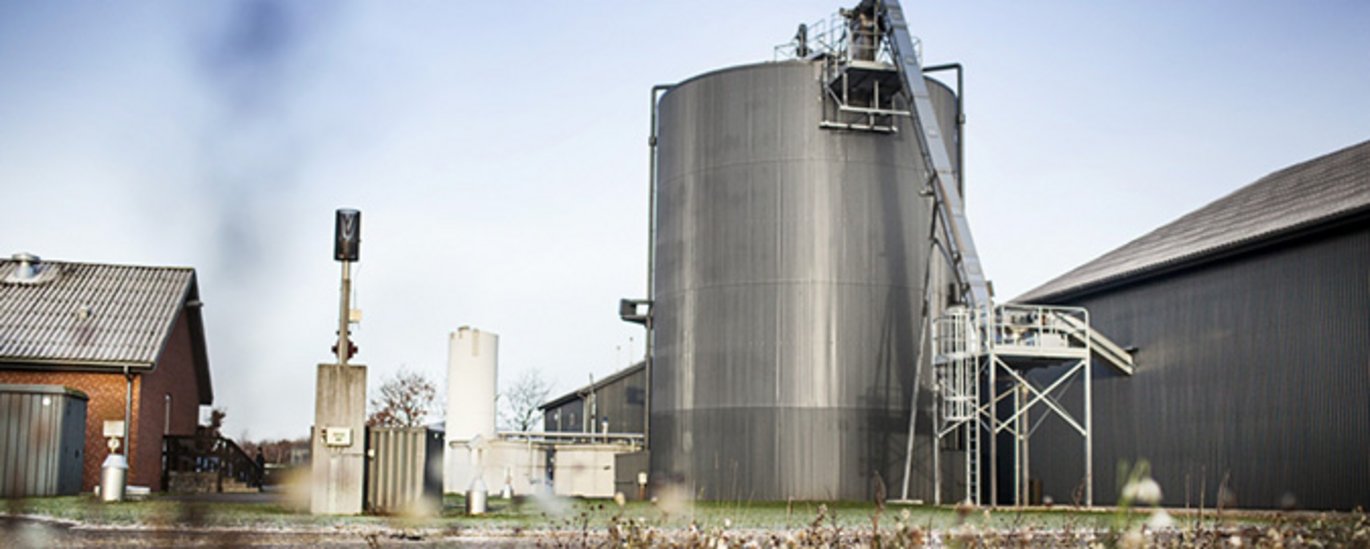New research will provide Apple with renewable energy – when the wind is not blowing
Research collaboration between Apple and Aarhus University will help stabilise the supply of renewable energy to Apple’s new data centre. The research will benefit the entire biogas industry.

On Friday 30 September, Apple presented the drawings of its new data centre, which will be located in Foulum near Viborg, right next to Aarhus University. Construction begins in the coming months, and the first stage covering approximately 35,000 square metres is expected to be completed as early as 2017. The centre will be extended on an ongoing basis during the course of the next seven to ten years and, on completion, Apple’s new centre is expected to cover an area of 250,000 square metres.
The purpose of the data centre is to process and store data in connection with operating Apple’s online services, which are known as App Store, iTunes, iCloud, etc. All this requires energy – a considerable amount of energy.
In the Danish scientific newspaper Ingeniøren (The Engineer), it has previously been estimated that the data centre’s energy consumption will be between 876 and 2190 GWh annually, which corresponds to the consumption of half a million Danish households. It has been decided that the large amount of energy consumption will be covered exclusively by renewable energy from sources such as wind turbines and solar cells. This means, however, that the power supply will be both unstable and difficult to store.
Research into sustainable and renewable energy
Apple has therefore entered into an agreement with Aarhus University, which will supplement the data centre’s energy supply with stable renewable energy in the form of biogas. In addition, research will be carried out into opportunities for storing energy from wind turbines and solar cells, in order to stabilise the sustainable power supply.
“We’ll carry out research in fields such as competitive methanisation technologies that can convert the carbon dioxide (CO2) component in biogas into methane by means of hydrogen produced from renewable electricity,” says Head of Section Lars Ottosen, Department of Engineering.
“The methane can be stored in the natural gas network and used as the basis for balanced electricity production for the data centre,” he continues.
The conversion of gas to electricity will take place in efficient fuel cells. Apple has considerable experience in this field from its American data centres, and this experience will be directly incorporated into the project.
Storing surplus energy
“One of the challenges of biogas is that it contains other undesirable substances in addition to methane and carbon dioxide. Part of the research will therefore also focus on cleaning the biogas and upgrading it to the level of what is popularly known as natural gas quality,” explains Associate Professor Ottosen.
In another part of the project, studies will be made of the real opportunities for storing wind and solar energy at system level via biogas. ‘Surplus’ wind power is currently sold at much lower prices. In extreme cases, in fact, the electricity companies pay to get rid of wind turbine power.
Supported by funds from Apple, the Aarhus University researchers will now be able to significantly boost their research in this field. Part of this will be done in collaboration with Haldor Topsoe, the catalysis company that is well advanced in the development of a commercial methanisation plant. The work will also be supported by a number of major projects that are in progress under Innovation Fund Denmark, the Energy Technology Development and Demonstration Programme (EUDP), and the Green Development and Demonstration Programme (GUDP).
Expanding the biogas plant
In the first stage of the project, Apple is investing DKK 21.5 million in research in this area. The agreement includes the expansion of the biogas plant at Aarhus University’s Research Centre Foulum. Among other things, the existing production reactor will be supplemented with an additional full-scale research reactor that can supply the data centre with biogas.
More information
Did you know that Aarhus University has the world’s largest biogas plant for research purposes?
Read more about Aarhus University’s research activities in biobased production.
Head of Section Lars Ottosen
Department of Engineering
Aarhus University
M ldmo@eng.au.dk
T +45 5137 1671
